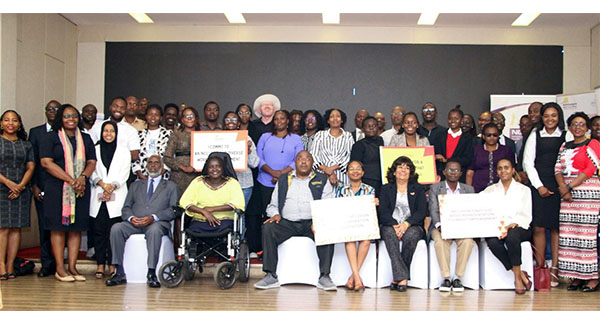Disability Inclusion: The Key to Thriving Workplaces!
Despite Kenya’s progressive legal framework—including the Persons with Disabilities Act, 2003, and the Employment Act, 2007, which prohibit workplace discrimination—unemployment rates among PWDs remain disproportionately high. Many businesses still lack the knowledge, policies, or infrastructure to support an inclusive workforce.
The Disability Inclusion Forum provided a platform for dialogue, equipping employers with practical strategies to close these gaps. Experts emphasised the importance of shifting mindsets, implementing inclusive hiring policies, and ensuring workplace accessibility.
The discussions centred on breaking down systemic barriers that hinder employment opportunities for persons with disabilities, promoting accessibility, and highlighting the benefits of diversity in the workforce.
The forum underscored that individuals with disabilities face numerous challenges, from social stigma and workplace discrimination to physical barriers that prevent them from accessing job opportunities. However, research has shown that diverse workplaces not only enhance innovation but also improve overall productivity and employee satisfaction.
Why Inclusion Matters: According to the World Health Organization (WHO), an estimated 15% of the world’s population lives with some form of disability. Despite this significant representation, employment rates among people with disabilities remain disproportionately low. In Kenya, the 2019 Census revealed that over 900,000 individuals identify as having a disability, yet only a small fraction have access to formal employment.
Incorporating disability-inclusive policies is not merely a corporate social responsibility move—it is a strategic business decision. Studies have indicated that companies that embrace diversity, including disability inclusion, experience higher levels of innovation, improved team morale, and stronger financial performance.
Additionally, fostering an inclusive work culture helps organisations comply with national and international disability rights laws, reducing the risk of legal challenges while enhancing corporate reputation.
Speaking at the event, NGEC Assistant Director, Programs Winfred Wambua emphasized the need for employers to view disability inclusion not as an act of charity but as an opportunity to harness a diverse talent pool. “People with disabilities possess immense skills and potential. When given the right opportunities, they can contribute meaningfully to the growth and success of organisations,” she stated.
Participants called for stronger policy frameworks, better enforcement of existing disability laws, and increased collaboration between the private sector, government agencies, and advocacy groups. Employers were also urged to tap into resources and networks that support disability inclusion, such as Kilimanjaro Blind Trust Africa and the UN Global Compact Network Kenya.
With growing recognition of the value that persons with disabilities bring to the workforce, the push for inclusive workplaces is gaining momentum. The success of businesses in the 21st century will be defined not just by profitability but by their commitment to equity, inclusion, and social impact.
Participants at the Corporate Roundtable on Workplace Disability Inclusion pose for a group photo


Comments